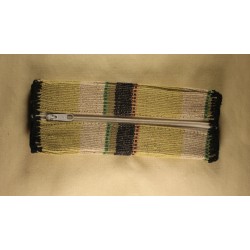Ethical Craft
"Economic systems that neglect moral and sentimental factors are like wax statues: they appear to be alive and yet they lack the life of the flesh being."
Mahatma Gandhi
Ethiquette is an association with a humanitarian development goal, which wishes to highlight the Gandhian economy through the creation of agricultural and craft activities in the Indian countryside, and the creation of holistic centers, dispensaries, schools etc ... in view to make the Indian villages autonomous and ecological.
Presentation :
Ethiquette is a non-profit association under the 1901 law. Its objective is to develop rural areas in India, focusing its action on four points:
a) creation or support of organic agricultural activities and farmers' cooperatives.
b) creation or support of various craft activities.
c) creation of cultural, sports and other activities.
d) foundation of holistic centers with libraries, yoga rooms, classrooms, dispensaries etc ...
Philosophy :
The origin of Ethiquette is found in India, and more precisely in the economic philosophy of Mahatma Gandhi. Non-violent economy is based, according to Gandhi on three points: Swaraj (self-governance and self-sufficiency), Swadeshi (priority to the neighborhood economy), and Trusteeship (ethics and support of the needy, with a view to their autonomy).
1) Swaraj (self-governance, self-sufficiency):
Etiquette finances, controls budgets, but it is the local actors who make the decisions about the activities to be promoted and the projects to be carried out. We also pay special attention to ensuring that women play a role in these decisions and activities.
Agricultural and craft activities are geared towards local consumption, and only surpluses are sold outside (including on this e-shop).
2) Swadeshi (neighborhood economy):
Etiquette encourages artisans to source raw materials from their neighbors, and not from wholesalers who would sell them cheaper, but ultimately end up creating unemployment and poverty in the village. Wool, silk, leather etc ... are produced directly in the village, or in neighboring villages, so as to create wealth and link in the villages.
3) Trusteeship :
This English term means "tutoring", but its meaning for Gandhi is quite broad. It is aimed above all at business leaders, heads of families, local leaders etc ... all those who have people in their care, whether they are employees, children, collaborators.
The goal of the "leader", called "guardian" in Gandhi, is not to exploit his subordinate to extract as much money or power as possible, but to treat him with kindness, and help him to become a autonomous day, even business manager, and therefore tutor of other people.
This vision induces several things, in particular:
- ethics becomes a priority over economic profitability,
- the tutor and the subordinates are in a positive relationship, without power play and without abuse,
- no one remains a worker or an underling all his life, nor a forced laborer, but everyone is moving towards a positive personal development.
With this in mind, Ethiquette works with marginalized populations in India, such as Dalits (untouchables), adivasis (forest peoples, tribals), nomads, lepers, AIDS and landless peasants.
To deepen this philosophy, we invite you to read Gandhi's book “Hind Swaraj”, where these three points are developed.












